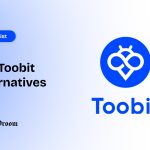The emergence of non-fungible tokens in the changing world of blockchain technologies and digital assets has been an unparalleled innovation. Among the myriad forms of NFTs, one intriguing and revolutionary concept has taken center stage: Soulbound Tokens. The innovative approach to digital assets adopted by Soulbound tokens is differentiated through their non-negotiability or non-transferable nature. This article attempts to unravel the depths of Soulbound Tokens, examining how they cannot be transferred and analyzing the effect they might have on the NFT marketplace.
- What Is a Soulbound Token?
- How Do Soulbound Tokens Work?
- Can You Purchase or Sell Soulbound Tokens?
- Uses of Soulbond Tokens
- Creator-Collector Relationships
- Digital Ownership and Authenticity
- Membership and Access Tokens
- In-Game Items and Virtual Worlds
- Collectibles with Emotional Value
- Tokenized Real-world Assets
- SBTs vs. NFTs
- Pros and Cons of Soulbond Tokens
- Pros of Soulbound Tokens
- Emotional Value and Connection
- Creator-Centric Relationships
- Protection Against Speculation
- Membership and Access Control
- Cons of Soulbound Tokens
- The Future of Soulbound Tokens
- Conclusion
Unlike regular exchangeable NFTs, Soulbound tokens are not transferable from one wallet or person to another. The idea is innovative as it goes against the conventional ownership principles that govern the realm of digital assets.
In other words, through exploring Soulbound Tokens, we shall investigate the reasons for this special choice concerning artists, buyers as well and the whole NFT industry. Let us embark on deciphering the thought behind Soulbound Tokens and how they are reshaping ownership of digital assets within the fast-changing blockchain environment worldwide.
What Is a Soulbound Token?
The unique trait of a Soulbound Token NFT is being non-transferable. A Soulbound token differs from most other non-fungible tokens because it cannot change ownership. The soul-binding property of this coin makes it impossible for any other person or address to own or transfer the same token.
Soulbound tokens are a philosophical concept that focuses on how they relate with digital assets towards strengthening a more permanent relation as well as showing the fact that they belong only to the owner and nothing more but this. Creators look to change the meaning of ownership in the digital space by rendering the transfers non-existent and thus redefining their ownership.
How Do Soulbound Tokens Work?
Soulbound tokens work based on non-transferability thereby generating a new form in the world of blockchain-based properties. Whenever a Soulbound Token gets minted or developed, it comes loaded with certain smart contracts that make it act in a particular way. Such smart contracts ensure that the token cannot be transferred to another person’s wallet or address.
Soul binding takes place by creating a link between a token and a particular wallet address or a user’s identity. Cryptographic principles lock this linkage thus holding the token with its owner. Usually, the smart contract regulating Soulbound Tokens contains provisions denying transaction functions such that the token becomes non-transferable in technical terms.
The restricting intangibility in regards to transferability is intended because digital assets should have an affinity to the owner to create a link that can only be used once and therefore lasts forever. This provides a unique view that goes against established notions of fungibility in the NFT world by placing human feelings and nostalgia above all else. Therefore, Soulbound Tokens reinvent the digital ownership concept and give a fresh perspective to what is known as non-fungible assets.
For newbies interested in NFT fragmentation is the new and modern advancement in the Blockchain era, here is a comprehensive guide just for you.
Can You Purchase or Sell Soulbound Tokens?
The soulbound nature of these tokens, which makes them non-transferable, is one of their major features. They are designed such that they cannot be bought, sold, or exchanged among various wallets or individuals. Smart contracts that support the operations of Soubond Tokens prohibit any transfer functions hence technically prohibiting the transfer of the Soulbond Tokens to another owner.
Soulbound Tokens is intended to shift away from the conventional idea of obtaining and disposing of Non-Fungible Tokens by forming a stronger bond with the person who created it. This makes these tokens non-transferrable thereby enhancing their exclusive and permanent nature which focuses more on emotional and sentimental attachment.
Unlike traditional NFTs where an artist sells digital images that are highly movable in a marketplace, SBT offers something else in which the creator becomes attached to the product in a different way from previous cases and so changes the perspective of interchangeability in the digital realm.
Uses of Soulbond Tokens
Soulbound Tokens, with their unique non-transferable nature, offer several innovative use cases within the realm of blockchain technology and digital assets:
Creator-Collector Relationships
Soulbound Tokens create better ties among developers and holders. Creators can also restrict the transferability of the token ensuring that only the devoted fan owns the created artwork creating more sense of belonging and exclusiveness.
Digital Ownership and Authenticity
These tokens could also serve as a means to represent digital authorship and veracity to document the truth regarding the original user. It is applicable in cases of digital art, virtual goods, and other types of digitally traded assets such as provenance and authenticity.
Membership and Access Tokens
They can also act as entry points into soulbound communities like digital platforms and events. Holding the Soulbound Token is a unique attribute that can afford users the privilege to own special content and make them feel like they are part of an exclusive group.
In-Game Items and Virtual Worlds
For instance, the Soulbound Token can be used to represent unique in-game items and assets in the gaming arena. This guarantees some selective or unique stuff would be with the player who bought it for a better gaming experience and worth.
Collectibles with Emotional Value
Digital collectibles are best suited for Soulbound Tokens as they reflect sentimental feelings associated with the ownership of items, including memories. Instead, collectors will value the token due to the immutable relationship the associated token has with its owner as it provides a high level of uniqueness.
Tokenized Real-world Assets
A similar approach can be used for the case of tokenizing different types of property and/or luxury goods whose tokens would not be the case of transferable assets. Such measures ensure that ownership and related rights are vested in a designated person.
Nevertheless, Soulbound Tokens mark a deviation from the conventional fungibility ascribed to NFTs as they present unique features that provide opportunities for artists, investors, and numerous sectors to rethink notions about contemporary forms of asset ownership and worth.
SBTs vs. NFTs
The SBT and NFT are the two transformative concepts associated with the blockchain but they differ greatly, especially in the ways they view transferability and possession.
NFT is considered a diverse category of objects, each being unique and indivisible, and ownership pertains to one such thing. They have become hugely popular due to their capacity for digital art, collectibles, and a wide spectrum of virtual asset transfers between wallets as well as users. A liquid market for NFT assets, which is an important environment for collaboration by artists and collectors.
However, the SBTs take an advanced turn by defying the standard interchangeability of NFTs. This token is deliberately not transferable such that anyone who creates it, associates it with a certain wallet or a single person. However, this move away from the established transferability norm comes as a deliberate design intent for creating stronger associations of the digital asset with its owner. This is mainly due to SBT’s focus on the emotional side and emotional attachment to assets that one owns, rather than focusing on speculative trading.
However, the most pronounced difference exists in their philosophical view on ownership. Unlike NFT which creates an exciting marketplace where properties of ownership can be changed easily, SBT prioritizes a long-lasting and exclusive connection between the artist and the purchaser. SBTs revolutionize the idea of ownership by emphasizing the inner worth and emotive connection between the buyer and the digital commodity.
Speaking, SBTs and NFTs are at opposite ends of the chain of development of the new generation assets based on blockchain technology. It is with fungibility that NFTs thrive, and hence, this has created a lively market for such kinds of digital assets, whereas SBTs, on purpose, limit transferability to build up a strong tie between creator and collector. The two ideas add color to the variety of options in the blockchain domain where producers and buyers could find unique ways of using and monetizing digital products respectively.
Pros and Cons of Soulbond Tokens
Pros of Soulbound Tokens
Emotional Value and Connection
The one main advantage of the Soulbound Tokens (SBTs) is their emotional value and connection between creators, and collectors. A feeling of uniqueness, faithfulness, and sentimental ownership concerning the underlying asset is established with SBT due to its indivisibility and permanence.
Creator-Centric Relationships
SBTs allow creators to keep direct and permanent connections with their admirers. Such may result in more support for artists and content creators, where collectors have a stronger association with the creator and the work they are making.
Protection Against Speculation
Non-transferable characteristics of an SBT can counter the speculative element normally linked up with NFT business. This will make for a well-grounded ecosystem whose environment promotes true valuation, unlike speculative trading.
Membership and Access Control
SBTs can double up as entry or privilege cards and offer holders unique perks, content, or participation in certain functions or networks. It increases solidarity among token holders and makes them feel like part of a single group.
Cons of Soulbound Tokens
Limited Liquidity
However, the fact that they are non-transferrable inherently limits their ability for liquidity. However, unlike ordinary NFTs that are bought and sold on any platform, the market for SBTs might be limited, making it challenging to trade these tokens.
Reduced Market Dynamics
Limiting transferability might compromise with the normal market forces witnessed in the wider NFT arena. Such a limit may discourage traders who are conversant with the flexibility of exchanging their crypto-currencies.
Challenges in Tokenization of Real Assets
However, it becomes difficult to apply the non-transferrable principle in the case of digitally represented traditional assets. More practically, real asset owners may need their assets to be transferable and SBTs may perhaps not suffice.
Potential for Exclusivity Concerns
Elitism could be a concern in some communities as a result of the promoted exclusiveness in SBTs. To have a healthy and diverse environment, it is important to strike a fine balance between exclusiveness and inclusiveness.
The Future of Soulbound Tokens
The potential of SBTs will be fascinating as the blockchain ecosystem expands. Niche markets in long-term relationship, uniqueness, and nonfungibility, this is what may prompt SBTs’ applicability. In the future, more creators will use SBTs to deepen the relationship between them and their audience. Such tokens can be used to show loyalty and make special opportunities available only for these supporters.
With time, interoperable solutions may become available such that SBT will be integrated seamlessly into various platforms and ecosystems. However, this may also widen the horizon for non-transferable digital assets like smart contracts and open up new avenues for SBTs being utilized to address more use case scenarios other than art and collectibles.
Additionally, there is debate on the environmental effects of blockchain technologies that make them not green and sustainable. SBTs can be aligned with such a sustainable and purpose-driven way to have digital ownership. The inclusion of other functionalities like governance aspects or updates of dynamic content could potentially increase the value offerings of SBTs for both creators and collectors.
However, as highlighted above, the success of SBT rests on its unique position as a different mode of ownership that appeals to those looking for emotional attachment, distinctiveness, and permanence despite it being part of a vast NFT marketplace.
Conclusion
Soulbound Tokens have emerged as leading innovators amidst progress in blockchain and NFT space. The idea that they are irreplaceable defies the conventional ideas about ownership of digital material while highlighting both the emotional aspect and the everlasting link between the creator and the collector. In that regard, the Soulbound tokens come into play defining the world of exclusive ownership in the digital asset age. This makes one think about the inner value of digital assets and brings more purpose to the sphere of NFTs.
















